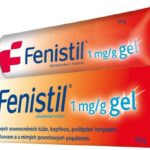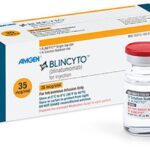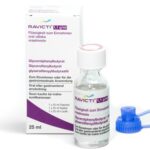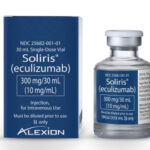Prevagen: Ingredients, How it works, Side Effects, Reviews
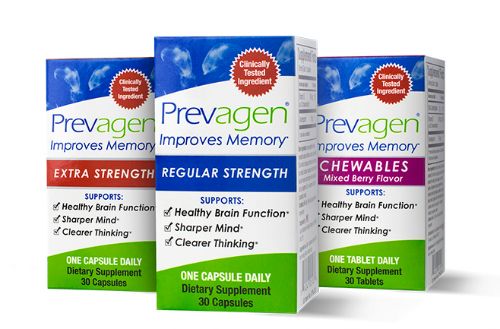
What is Prevagen?
Prevagen is a daily dietary supplement that has been clinically shown to help people with mild memory problems that are frequently associated with aging. Originally discovered in jellyfish, Prevagen is now made in a controlled scientific process. Developed by university researchers and scientists in Madison, Wisconsin.
The brain shrinks with increasing age and there are changes at all levels from molecules to morphology. Incidence of stroke, white matter lesions, and dementia also rise with age, as does level of memory impairment and there are changes in levels of neurotransmitters and hormones.
As we age, we also lose proteins that support our brain, Prevagen supplements these proteins during the natural process of aging. Prevagen is clinically shown to help with mild memory problems associated with aging. In clinical studies Prevagen improved memory within 90 days.
What are the ingredients in Prevagen?
Each version contains 50 mcg (2,000 units) of vitamin D3 and varying amounts of apoaequorin, a protein found in certain types of jellyfish. The three different strengths of Prevagen contain either 10 mg, 20 mg, or 40 mg of apoaequorin.
The makers of Prevagen also offer a protein shake mix called NeuroShake, but this product does not contain either of these ingredients. Instead, it contains protein, calcium, and phosphorus. This article will only be discussing the oral capsules and tablets.
Is Prevagen FDA-approved for memory loss?
No, Prevagen is not an FDA-approved medication and should not be taken if you have dementia or Alzheimer’s disease. Dietary supplements like Prevagen do not require FDA approval to be sold OTC, as long as they do not make claims to treat, cure, or prevent medical conditions. This typically means testing on how safe and effective they are and what medications they interact with are limited.
How Does Prevagen Work?
As stated above, Prevagen is a daily capsule or tablet that comes in three strengths: 10, 20, and 40 milligrams of apoaequorin. Its website says it’s not meant to treat, prevent, or cure any disease. And the company that makes it says it’s intended for healthy people who don’t have dementia.
Prevagen is a “calcium-binding protein,” and research links calcium to brain health and memory. An imbalance of calcium in brain nerve cells called neurons might play a role in aging the cells, destroying them, and disrupting signals between them.
As mentioned earlier, apoaequorin is a protein found in a type of jellyfish. In laboratory experiments, apoaequorin acts similar to a protein in our bodies called calmodulin. Calmodulin is thought to play an important role in memory, although research on it is limited. This is the reasoning behind Prevagen’s choice of ingredient.
One concern with placing apoaequorin in a capsule or tablet is that there may be problems with how it is absorbed. When you consume a protein by mouth, your stomach and pancreas quickly start working together to break it down and digest it. This makes creating successful oral protein-based medications very difficult and is the reason why many of these medications are injectable only.
Because Prevagen is an OTC supplement, it is not required to undergo testing to show exactly how it works in the body after you take a dose. So, there’s a possibility that the apoaequorin may be broken down while in the stomach instead of absorbed, leading to questions of how it can reach the brain to help with memory loss.
Does Prevagen work?
There isn’t strong research that Prevagen taken by mouth boosts memory. The Prevagen website points to one small study that was sponsored by the supplement’s maker (Quincy Bioscience). The study looked at 218 adults ages 40 to 91 who said they had concerns about their memory.
The researchers randomly assigned some of them to take capsules with 10 milligrams of Prevagen daily for 90 days, while the rest were given placebo capsules that had only white flour in them. All of the participants then took nine computerized tests over the course of the study to gauge their thinking-related skills.
By the end of the study, the researchers said that some of the people who took Prevagen showed slight improvements, compared to the placebo group, on a few of the tests. Those people had little or no cognitive impairment, which is trouble with remembering, learning new things, focusing, or making key decisions. The researchers concluded that Prevagen could “improve aspects of cognitive function” in people with normal brain-related aging or very mild cognitive impairment.
But could swallowing calcium-binding protein based on jellyfish somehow benefit your human brain? Research suggests it doesn’t, experts say. The apoaequorin in Prevagen likely gets digested by your stomach before any of it stands a chance of reaching your brain.
What are the side effects of Prevagen?
Prevagen is possibly safe when taken by mouth appropriately. A 10 mg dose of Prevagen, has been used safely for up to 90 days. No clinical research has adequately evaluated side effects caused by Prevagen. Some people who have taken Prevagen have reported potential side effects to a manufacturer of the product. Some of the most commonly reported side effects of Prevagen were:
- Headache
- Dizziness
- Nausea
Other less common side effects of Prevagen are:
- Memory problems
- Difficulty sleeping
- Anxiety.
There have also been a smaller number of reports of more serious potential side effects such as heart and nervous system-related events. It is important to understand that although these events occurred while people took this product, this does not necessarily mean that the product caused these events. There is not enough information about these potential side effects to know if Prevagen was the actual cause of these side effects.
Prevagen Class-action suits
Several class-action suits have been filed against the makers of Prevagen, claiming that its advertising was deceptive. In one, settled in 2020, Quincy Bioscience denied wrongdoing but agreed to provide refunds to eligible class members for 30 percent of their purchases with payments capped at $70 with proof of purchase or $12 without proof of purchase. Another case ended in a mistrial after jurors deadlocked.
You can find useful information on: List Of Drugs Linked To Dementia?

